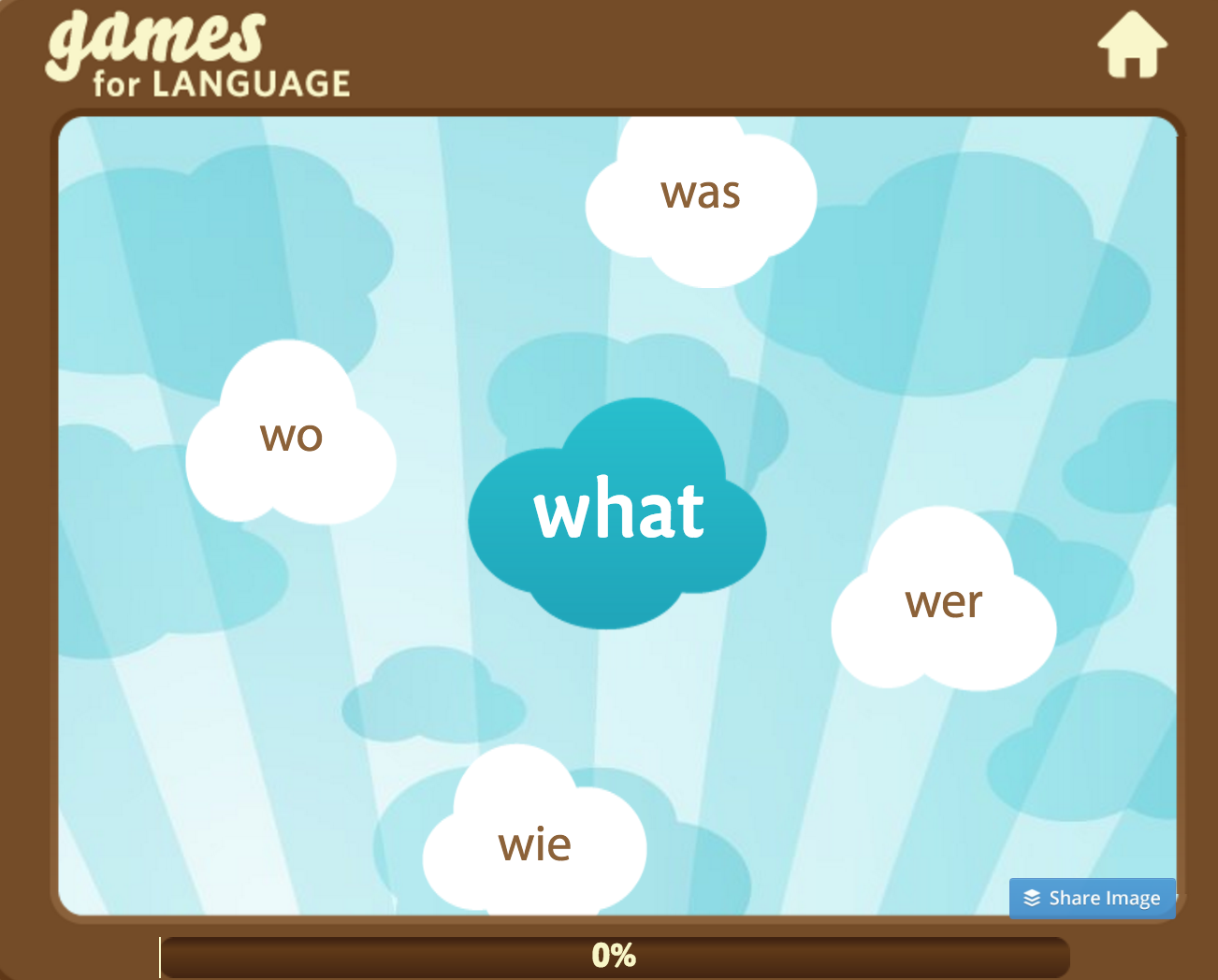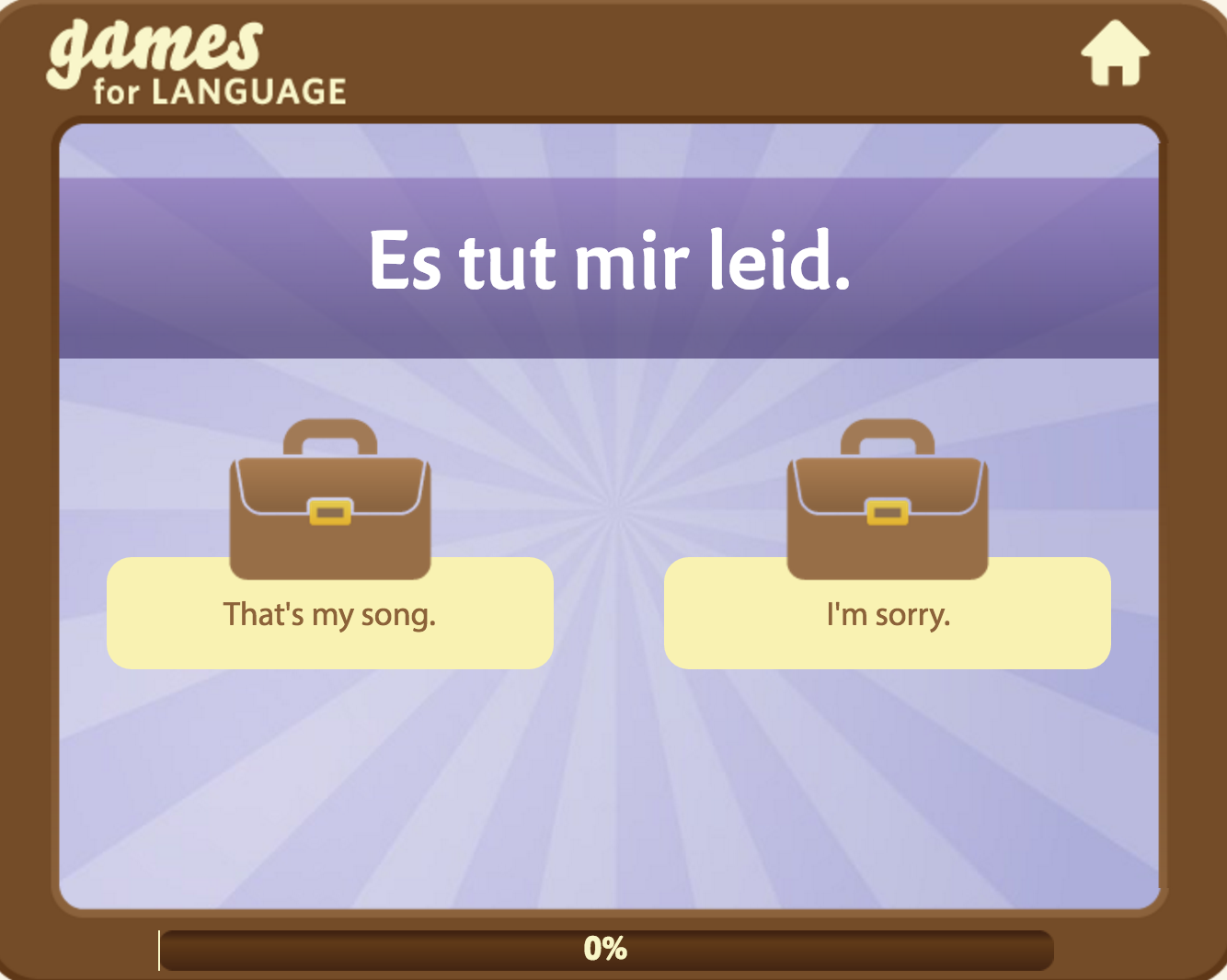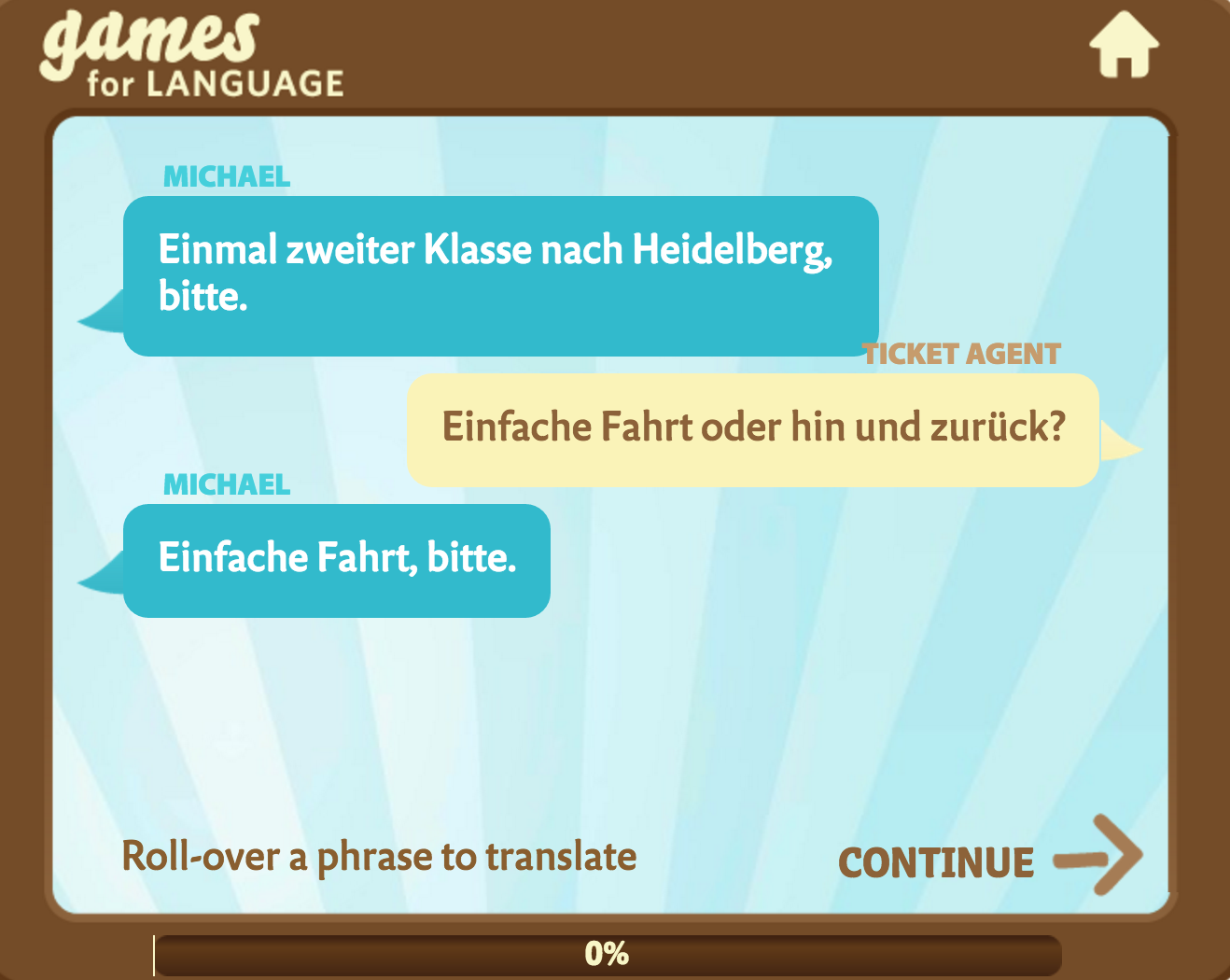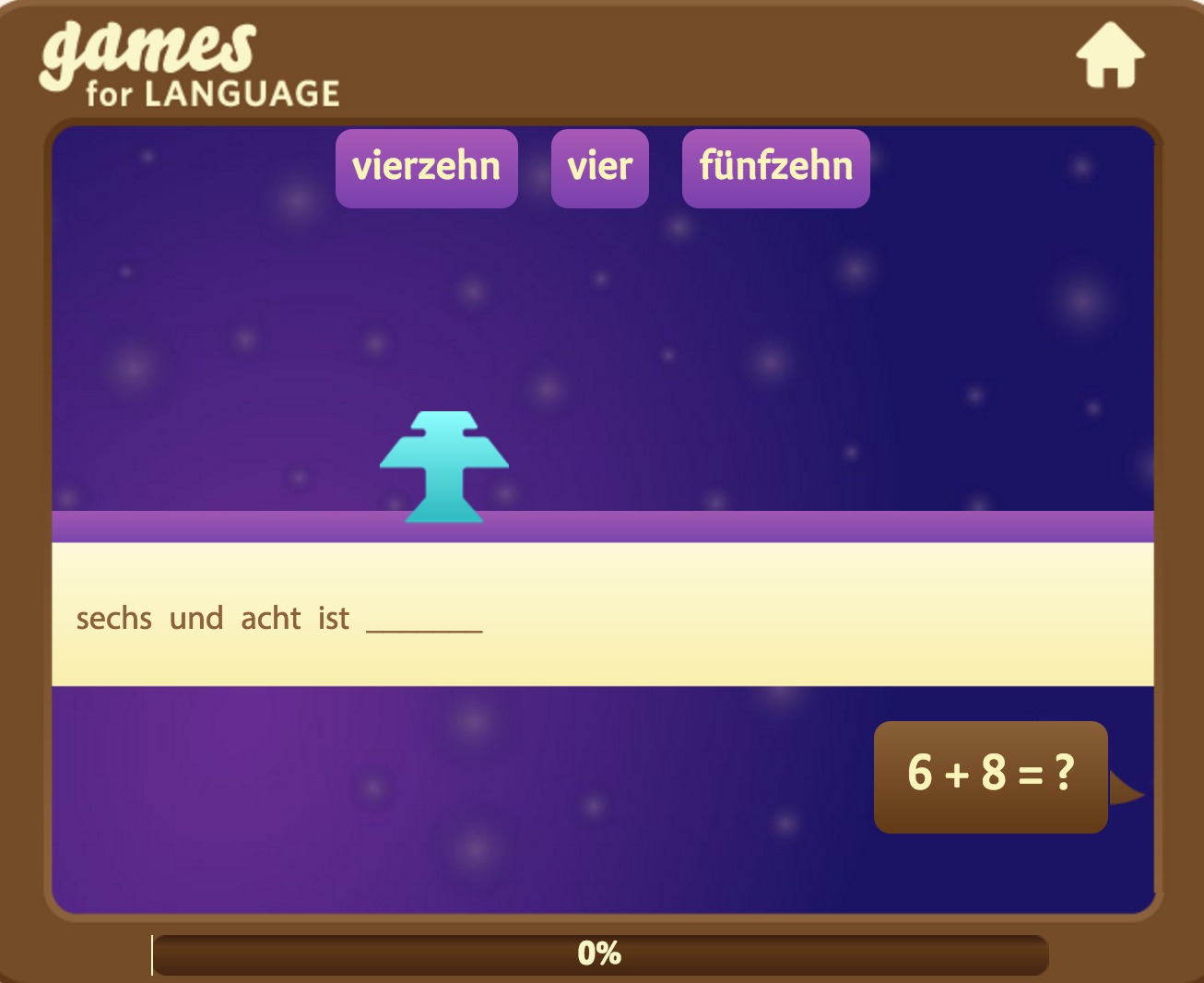4 Fun German Language Games Before You Travel
 Are you planning to travel to Germany, Austria, Switzerland, or another country where you can use German? (Image left: Neuschwanstein castle, Bavaria, Germany)
Are you planning to travel to Germany, Austria, Switzerland, or another country where you can use German? (Image left: Neuschwanstein castle, Bavaria, Germany)
Then practicing your German with these German language games may be for you!
In our travels we have found that knowing question words, some basic vocabulary, common travel phrases, and the numbers 1-100 has been very useful in countries where we don't speak the language.
You won't speak German fluently, of course, after reading this post and playing the four games. But you're sure to remember some of the words and phrases, and how to pronounce and use them correctly.
A Few Simple Tips
Say the words out loud: Always say the words and phrases aloud, or if you're on a bus or standing in line, mouth them silently to yourself. Then when you're on your own, say them OUT LOUD from memory.
Practice chunks: A good way to learn phrases and expressions is to practice them as "chunks" not as a series of individual words.
Practice idiomatic phrases: These often have a meaning that's quite different from the sum of the individual words in it. Practice idioms as whole phrases and attach a mental image to them.
Repeat and recall: Repetition is essential. We rarely learn something just by hearing and saying it once or twice.
Practice the sounds: To pronounce foreign words, we have to learn which mouth muscles to use for the right sounds. Each particular combination of sounds has to get lodged in our brain. And, our brain has to connect sound to meaning.
Write out the words: No matter how you like to learn German, speaking words and phrases out loud and writing them out by hand will help you remember them.
1. Question Words
 Interrogatives are a basic tool for giving and getting information, either in casual conversations or when you're shopping, asking for directions, or inquiring about opening and closing times, train schedules, local events, etc.
Interrogatives are a basic tool for giving and getting information, either in casual conversations or when you're shopping, asking for directions, or inquiring about opening and closing times, train schedules, local events, etc.
In English, common question words - with the exception of "how" - tend start with "wh-" (when, where, why, who, what, which).
Common German question words begin with a "v" sound, which is how you pronounce a German "w."
English and German have look-alikes that have different meanings. For example, English "who" is German "wer"; English "where" is German "wo." Also, German has individual words for "where," "where to," and "where from."
Here is a Game to practice German question words. (Click also on "Snap Cloud" screen, above left.)
2. Basic Everyday Phrases
 The basic phrases in our game include greetings and pleasantries that you would use often and in many situations - in a café, at a bar, at a party, in a store, online, on Skype, etc.
The basic phrases in our game include greetings and pleasantries that you would use often and in many situations - in a café, at a bar, at a party, in a store, online, on Skype, etc.
(Click on "Deal no Deal" screen shot, right)When you learn conversational phrases and expressions in context, you're focusing on communication. You don't have to think about grammar.
Learn and practice German Basic Phrases with this fun German game.
3. Buying a Train Ticket
 Going by train in Germany, Austria, or Switzerland is one of the pleasures of traveling there. (Click on "Dialogue" screen shot, left)
Going by train in Germany, Austria, or Switzerland is one of the pleasures of traveling there. (Click on "Dialogue" screen shot, left)
The network of train and bus connections is huge and with it you can reach many towns and villages that are off the beaten track.
Knowing a few specific terms is very helpful because outside of the cities not everyone is fluent in English. You'll definitely want to understand and say the German for such terms as "ticket," "one-way," "return trip," "change," and other terms involved with buying a ticket.
This Buy a Train Ticket game will give you a good start.
4. Practice Numbers with German Language Games
When you travel to another country, knowing the numbers is a good skill to have. But you need to be able to understand them as well as to say them.

Numbers come in handy for talking about schedules, shopping, paying in a café, buying tickets, making hotel reservations, etc.
Knowing the numbers 1-100 is a good start. German numbers up to twenty are easy for English speakers. Then, you have to remember that the numbers from 21 to 99 are turned around.
In German you say "one and twenty", "two and twentey", right through to "nine and ninety". It's a matter of saying them enough so they become automatic.
Here's the Numbers 1-20 game to practice the numbers in a fun way. (Click on "Word Invaders" screen shot, above left)
Even if you don't have the time or motivation to learn a language to fluency before traveling, knowing some key vocabulary and phrases will go a long way to making your trip more enjoyable. It will also be quite helpful in many circumstances, and who knows, perhaps get you out of some tricky situations.
You want to learn more German?
If you're having fun with our approach and these games, you'll find additional Quick Language Games for French, German, Italian, Spanish, and Inglés on our site.
Or why not try our FREE German 1 travel-story course: Michael in Deutschland. With its 36 fifteen-minute lessons you'll learn over 600 new words.
But, even more importantly, you'll practice the phrases and sentences of a travel story – useful, real-life language that you'll be able to put to use when visiting Germany, Austria, Switzerland, or one of the other countries or regions where German is widely spoken, such as, South Tyrol (Italy) Liechtenstein, Luxembourg, Belgium.
And, just maybe, you like German songs, such as the one my husband often hums in the morning: Guten Morgen liebe Sorgen .... This song was an ear-worm in Germany in the 90s. You can learn more about it and its funny lyrics by clicking on the song title link above.
You can also check out our - equally FREE - sister site Lingo-Late if you are just looking to learn and practice Essential German polite phrases & greetings for travel.
Bio: Ulrike Rettig is the co-founder of Gamesforlanguage.com. She's been a lifelong language learner, growing up in Austria, the Netherlands, and Canada. You can follow her on Facebook, Twitter and Instagram, and leave any comments on our site on contact.
